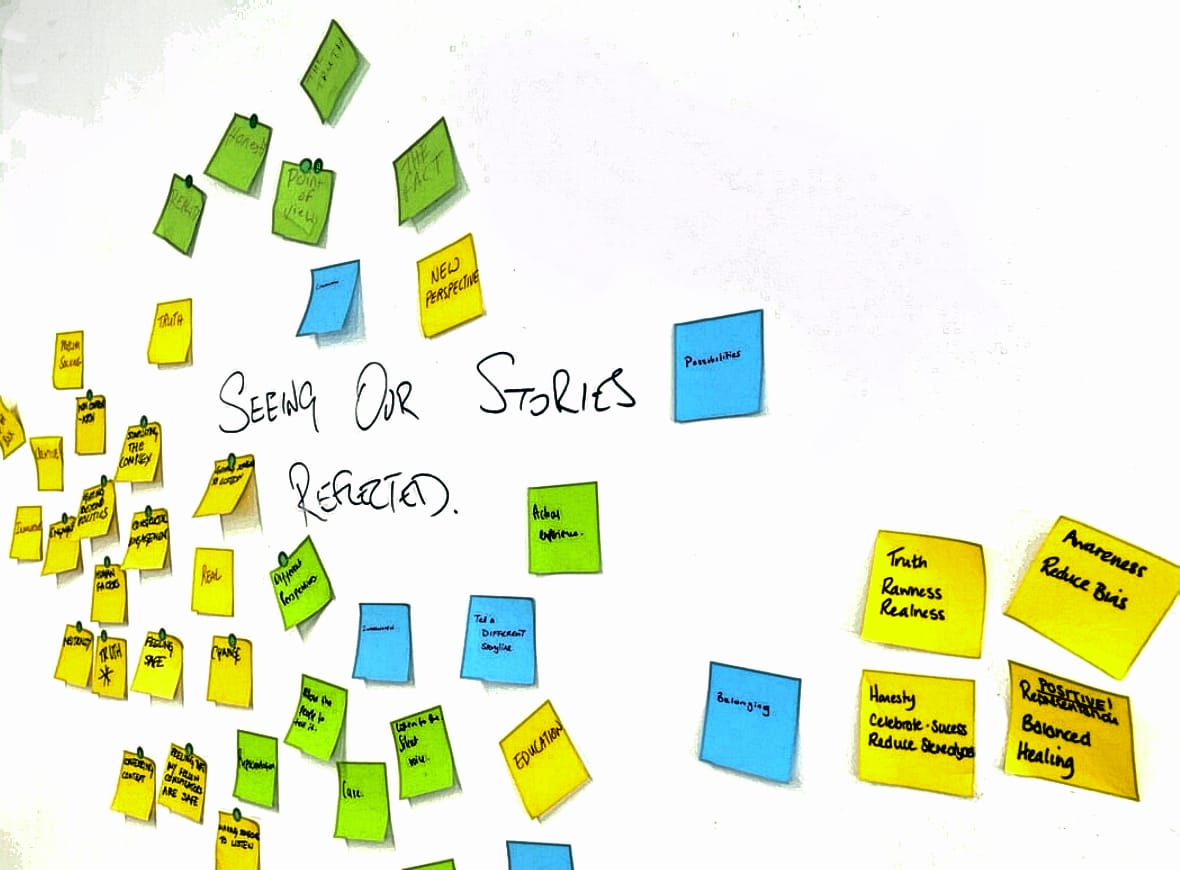A free press is an essential part of democracy, but the old models of journalism aren’t working. We need accountable journalism which is rooted in communities, supported by sustainable funding models, which helps a divided society talk to another and holds the powerful to account.
We need journalism which is:
- Independent and free from government control
- Journalism needs to be independent of powerful interests so that it can properly hold power to account. Independence can be impeded by government actions and inadequate legal protections for journalists, and we are seeing increasing restrictions of this kind here in the UK and internationally. Independence can also be impeded when the owners and editors of newspapers are part of establishment elites and share their interests, and when commercial considerations are more important than properly investigating and reporting truthful stories. We need independent journalism which prioritises the public interest and is able to fearlessly confront the powerful.
Learn more:- ‘Blowing the whistle on media coverage of Assange’ – event at the MRC’s Media Democracy Festival 2021
- The Independent Media Association – a democratic representative body dedicated to promoting the work of independent media which is free from corporate and political control
- The Independent Community News Network exists to support the community news sector and promote quality journalism, help address the democratic deficit in news poor communities and help create more jobs at the local level
- Collaborative and Democratic
- Journalism as we know it is an elite profession, heavily dominated by white, male, class privileged people from the south of England. Having such a narrow range of perspectives can lead to dangerous inaccuracies and important stories being missed, and make it very hard to make sense of the world we live in. We need journalism that represents the full diversity of people’s lives, and provides more avenues for communities to participate in framing and telling their own stories – becoming active citizens rather than passive consumers of traditional media.
Learn more:- The People’s Newsroom Initiative – a project from Bureau Local to support the creation sustainability of community projects that reimagine journalism
- Media cooperatives such as The Bristol Cable, The Ferret and The West Highland Free Press, where reader members get to have a say in how the organisations are run
- The 2021 investigation into Deliveroo – an innovative partnership between the Daily Mirror, ITV news and the Bureau of Investigative Journalism,, where three participant journalists (two of them couriers) were paid to design and guide the investigation.
- Accountable
- Protecting press freedom doesn’t mean that journalists themselves are above the law or beyond accountability. The Leveson Inquiry into phone hacking exposed how unaccountable and harmful the UK’s news environment can be, yet a decade later very little has changed. The Independent Press Standards Organisation (IPSO) – the press regulator favoured by mainstream newspapers – seems to exist mostly protect its newspaper members rather than provide justice for the public, and has still never launched an investigation into malpractice or levied a fine. We need new institutions to hold the press to account, and new norms and practices where journalists can take pride in upholding high standards in their work.
Learn more:- MRC blog on our proposals for new forms of regulation and accountability in a media commons
- IMPRESS, the independent press regulator founded in 2015 which currently regulates over 190 publications in the UK
- Hacked Off works closely with victims of press abuse and campaigns for a free and accountable press for the public
- Sustainably Funded
- Independent journalism is often run on a shoestring. Research by the Public Interest News Foundation in 2022 found that 72 independent news outlets were reaching 39 million people via their websites alone, on annual revenues of £7 million. We urgently need a sustainable funding mechanism for high quality journalism that allows it to be independent of political control and commercial pressures, and meet the needs of all communities.
Learn more:- MRC blogs on why public funding is a necessary part of funding the journalism we need today, and how this kind of funding could be distributed democratically
- The Public Interest News Network is lobbying for independent publishers to have a collective voice in negotiations with the tech giants via the Digital Markets Unit
- The Charitable Journalism Project advocates for easier access to charitable status for newsrooms to help them secure grant funding
- Available in all local communities
- Across most of the UK, local news is provided by a handful of commercial companies. For the last two decades, these companies have been consolidating newsrooms and cutting costs, and the volume and quality of local journalism has been severely undermined. As the Cairncross Review documented in 2019, without high quality local news we see less participation in democratic life, less accountable public institutions, and the failure to cover major public interest news stories such as the flammable cladding on Grenfell Tower. We need to research and document local news deserts, and create new mechanisms for addressing them.
Learn more:- Professor Natalie Fenton giving evidence for the Media Reform Coalition to the DCMS select committee on the sustainability of local journalism
- The News For All campaign from the Public Interest News Foundation
- Mapping local news provisions and reach in England – research from Canterbury Christ Church on local news deserts
- Made by empowered, unionised workers
- Journalists need to be empowered in their workplaces to uphold high standards and to avoid undue influence from editors and commissioners. Media unions are fighting hard for better working conditions and protections, such as a conscience clause for journalists to refuse unethical assignments, and more support for those on insecure contracts
Learn more:- ‘Strengthening UK Media Unions’ – panel event at MRC’s Media Democracy Festival 2022
- The NUJ is the voice for journalists and journalism, supporting staff and freelancers in newspapers, broadcasting, book publishing and online
- BECTU represents over 40,000 staff, contract and freelance workers in the media and entertainment industries, and is the largest union at the BBC]
Our work on the future of journalism
– Consultation response
MRC submission to the DCMS consultation on the sustainability of local journalism, 2022. Click here to view
– Public Interest News Network
Lobbying for independent local news providers to be included in any funding which becomes available from tech giants
– Participatory Funding Guide
The participatory funding guide outlines how participatory grantmaking could be adapted for democratic and accountable funding of journalism. The guide was produced by the MRC’s Dr Deb Grayson in collaboration with the Public Interest News Foundation and the Institute of Welsh Affairs. Read a summary of the ideas behind the guide.




